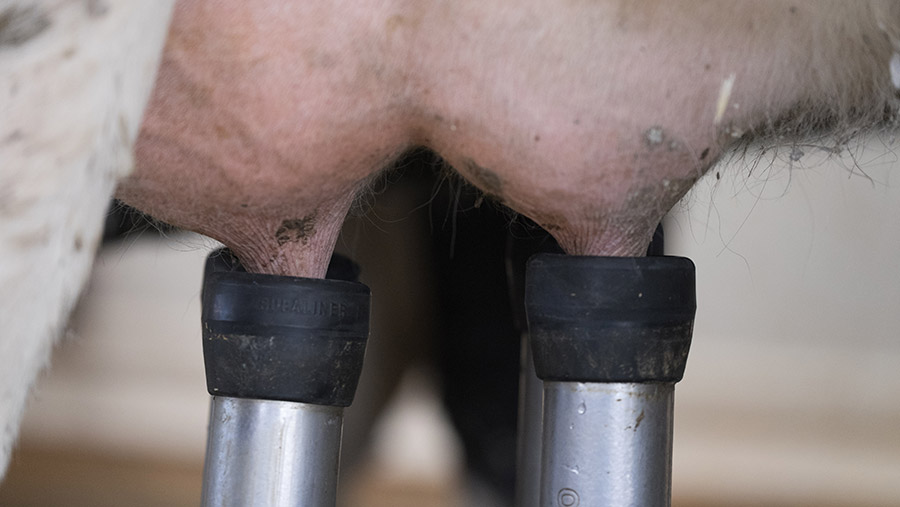Why is the dairy industry divided over milk contracts?
 © Tim Scrivener
© Tim Scrivener A widely anticipated Defra consultation has reignited debate across the dairy industry on the future shape of milk contracts.
The body representing the majority of UK milk processors, Dairy UK, believes no changes are needed to the current system, while a number of farming organisations are pressing for Defra to introduce reforms that would deliver more transparency on pricing and increase the minimum contract length.
The catalyst for the chasm that has emerged between the two sides is the proposed adoption by Defra of the EU Parliament’s Common Market Organisation (CMO) regulation, on which the department is expected to start a consultation before Christmas.
See also: 5-step guide to preparing a budget for your dairy farm
The CMO is a proposal document from 2013, which outlines a number of recommended reforms for EU member states moving towards Common Agricultural Policy (CAP) reform in 2020.
Despite it being EU legislation, it is understood Defra is looking to hand-pick elements of the CMO and enact them into UK law.
Dairy UK, whose processor members account for 85% of the country’s milk production, claim that reform and regulation would lead to too rigid an industry.
They say this would make them unable to react to market signals, endangering processor finances that would ultimately filter down to lower milk prices, and they want the government to maintain the status quo.
Who are Dairy UK’s members?
- Arla Foods
- Glanbia Cheese
- Muller Milk and Ingredients
- First Milk
- Dairy Crest
- Graham’s the Family Dairy
- Lakeland Foods
- Lactalis McLelland
- Dale Farm
- Crediton Dairy
In the other corner, those in favour of contract reform include Defra, all four of the UK’s national farmers’ unions and the Groceries Code Adjudicator (GCA), who earlier this year published a report calling for a rebalance of power in the dairy industry (pdf).
What does the CMO say about dairy?
- Contracts should have transparent pricing
- Prices should either be fixed or linked to market signals
- Minimum contract length should be six months
- Encourages the creation of producer organisations
- Includes safety net provisions such as skim-milk powder and intervention storage
The forthcoming consultation on contract reform is described by Dairy UK as unhelpful and unnecessary.
“There is a misconception being put around the industry that regulation of contracts is needed or wanted by all farmers,” said Dairy UK chairman Paul Vernon.
He said that in reality, the majority of farmers from the processors represented by Dairy UK were not in favour of dairy contract reform, and urged the government to reconsider its proposals.
“We sat down with the farming unions and endeavoured to reach an agreement with them on what good regulation of contracts would look like,” he said.
“We thought we were making progress but we didn’t.”
Dairy UK says that regulation would risk greater volatility in the market and result in a less competitive industry at a time of great instability in the country.
The pro-reform argument
The national farming unions have long been calling for fairer, more transparent contracts.
The failure of the Voluntary Code of Practice to sign up all UK processors to a common set of rules on buyer-producer relations has led the unions to this stage and explains their support for the implementation of elements of the CMO.
A joint union statement said that for too long dairy farmers had shouldered too much of the risk in the dairy market and in many cases they had been subject to unfair contract terms and trading practices.
It added: “Dairy farmers needed to be in a strong position to develop professional and sustainable relationships with their buyers while operating to fair trading terms.
“As outlined in the GCA review published in February, there is clearly an imbalance of power within the dairy supply chain.”
In February 2018, the GCA stated that there was a significant pattern of unfair and unclear terms and conditions in contracts which were particularly prominent in the dairy sector.
This is a view contrary to that held by Dairy UK and its members at a meeting in Central London on Friday (23 November), with leaders of major UK processors stating that there was no imbalance in the dairy industry.
